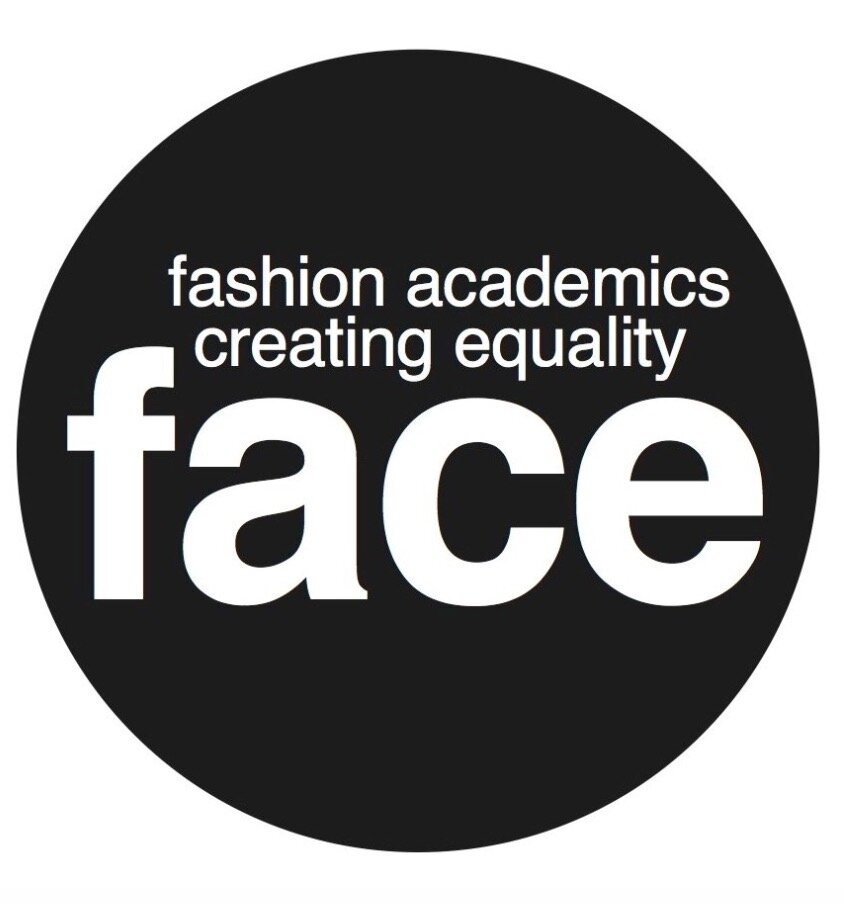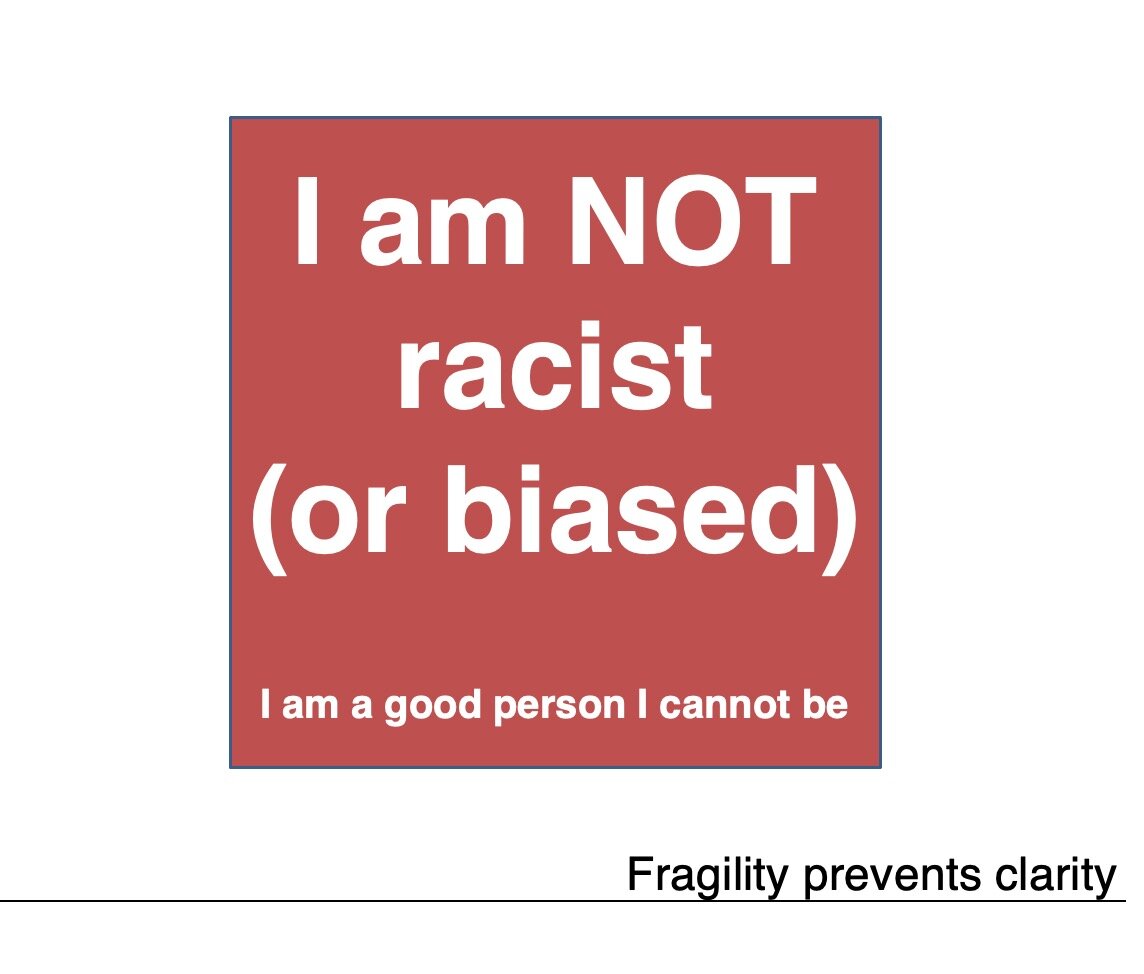White Denial
Since becoming a member of FACE, my knowledge of systemic race inequality has been increased tenfold. The insights, learning and new vocabulary I have been gifted, make me a more expansive thinker. Thank you FACE.
We all benefit from vital race and culture perspectives. We all benefit from the advance of Black and Brown academics into leadership positions. And make no mistake, our young creatives are looking at your institution right now; your staff representation, your cultural relevance and your ability to supply a fit-for-purpose education; and wondering if you can deliver. Well can you?
Make no mistake, our young creatives are looking at your institution right now
To all white academics, I ask, WHY would you not want to embrace the obvious personal and professional gains by acknowledging the barriers to race equality in your own practice and then doing something about it? I have to ask - because our white denial, fragility and defending along with the lethargy and silence, that FACE members experience when the subject of race, culture and race-inequality comes up; discredits us as educators.
White denial, fragility and defending along with the lethargy and silence discredits us.
And then there is the sense of entitlement by many white academics, to benefit from the unpaid and exhaustive emotional labour supplied by the one person of colour in the building, to fix the broken system we have created.
Denial and defending against internalised racism and white privilege; a pointless, self-centered exercise.
You think you are offended because you have been challenged? Your way of viewing the world is questioned. You are sheltering in a bubble, you are fearful of change or even being found lacking vital knowledge. Get over yourself and get curious. Learn and pass that learning on - this is surely the fundamental underpinning of your calling as a teacher?
“I don’t see colour /
Surely this is all in the past /
But this doesn’t apply to me /
I would never behave like that /
I’m offended by your accusation,”
No one is accusing you of the heinous acts that racism is responsible for but you are complicit in a system that ignores racism. And you do benefit from white privilege.
Racism is not an insult it’s a condition you have been socialised into. Your white-centric experience and world view has anaesthetised you. It has dulled your brain and you are not thinking clearly. Fragility is reductive and negative, signifying a lack of resources for managing internal states.
And BTW, refusal to investigate our own limitations is psychological weakness not a sign of strength or conviction.
What you are really saying… “I choose to shield myself, erase reality, enjoy my unearned advantages and I give the burden back to those affected.
I choose ignorance and I shut down to feeling, learning and action.”
Meanwhile our colleagues and students are isolated, ignored and unsupported because we are not willing to acknowledge our complicity in maintaining a race unequal system.
When you place yourself in a superior position, making yourself intellectually and morally vulnerable to challenge, you set yourself up. Why do that? No one is exempt from the social conditioning we receive from birth that ranks human beings according to skin-tone.
Practicing superiority or centering; Protesting exceptionalism, innocence, fragility, apathy; Performing saviourism, silence, white feminism, white gaze, priviledge, entitlement, muting others, tone policing, getting angry, indignant, being a victim…Give it up.
If you are uncomfortable – consider the feelings of your Black and Brown colleagues and students.
Black academics make up just 2% of the total working at UK universities. Just
0.7% of Professors are Black. White male professors’ number at 15,700, while Black female professors’ number at 25. Only 75 people on university governing bodies identified as Black from a group of 3,600.
And how does this impact choices and leadership?
OWN it! Emotion is a powerful motivator for action. Feel it to engage with the injustice. And yes you may feel ashamed or self-loathing. When we look at our complicity and our disinterest previously, it’s the obvious thing to feel. This is an authentic and vital response, but you can move through it towards purpose. Do the reading and the learning independently (see our academic resources on the site) and get involved. Join us and use your powerful feelings to drive positive change.
“Black people do not need allies. We need people to stand up and take on the problems borne of oppression as their own. We need people to use common sense to figure out how to participate in social justice.”
Roxane Gay, author: Bad Feminist, Hunger, Difficult Women, Untamed State, Ayiti
Studies show humility to be a valuable emotional-intelligence tool. Humility releases us from permanent self-focus, virtue signalling, pride, competitive ego, aggressive defending, shame, self-loathing. It makes us likeable, generous, mitigates stress, is associated with greater group status, helps repair and maintain relationships.
And how to go forward? We can remain in, and return to, a learning position. We must always be open to learning as academics and curiosity is our rocket fuel. With new knowledge, we can leverage our privilege and power for effective challenge to systematic racism and individual denial.
PROBLEM SOLVING AND HIGHER CREATIVITY
Leicht, Randsley de Moura, & Crisp (2014).
COMPETITIVE ADVANTAGE
Hunt, Leyton, & Prince (2014).
HIGHER PROFITABILITY
Gender and racial diversity on executive teams correlated with between 25% and 36% percent above-average profitability.
And yes there are gains. As studies show, each one of us can access opportunities for better problem solving and higher creativity, because, amongst diverse perspectives or as psychology labels this “engagement with counter stereotypes,” we experience lesser reliance on heuristic thinking (the way we’ve always done things). Our brain is processing differently (enhanced cognitive flexibility and creativity) and this leads to new ideas and ways of doing things.
Leicht, Randsley de Moura, & Crisp (2014).
We can expect competitive advantage too. There is a statistically significant relationship between greater inclusion, diverse identities/perspectives AND...better financial performance, improved customer orientation, employee satisfaction.
Hunt, Leyton, & Prince (2014).
What’s not to love about about a future practice, where we each, as curious, driven, purposeful academics experience our best selves? AND give the best of ourselves to our students whilst working towards a future free from race inequality and ignorance. Discuss.
Text: Caryn Franklin M.B.E. BA (Hons) MSc (Psych) MBPsS
Fashion and Identity Commentator/Agent of Change
Visiting Professor of Diverse Selfhood at Kingston School of Art
With thanks to co-founders Pascal Matthias, Sharon Lloyd and Andrew Ibi and all FACE members for the conversation.
Referencing Layla F Saad. Me and White Supremacy (2019)
Further Reading






